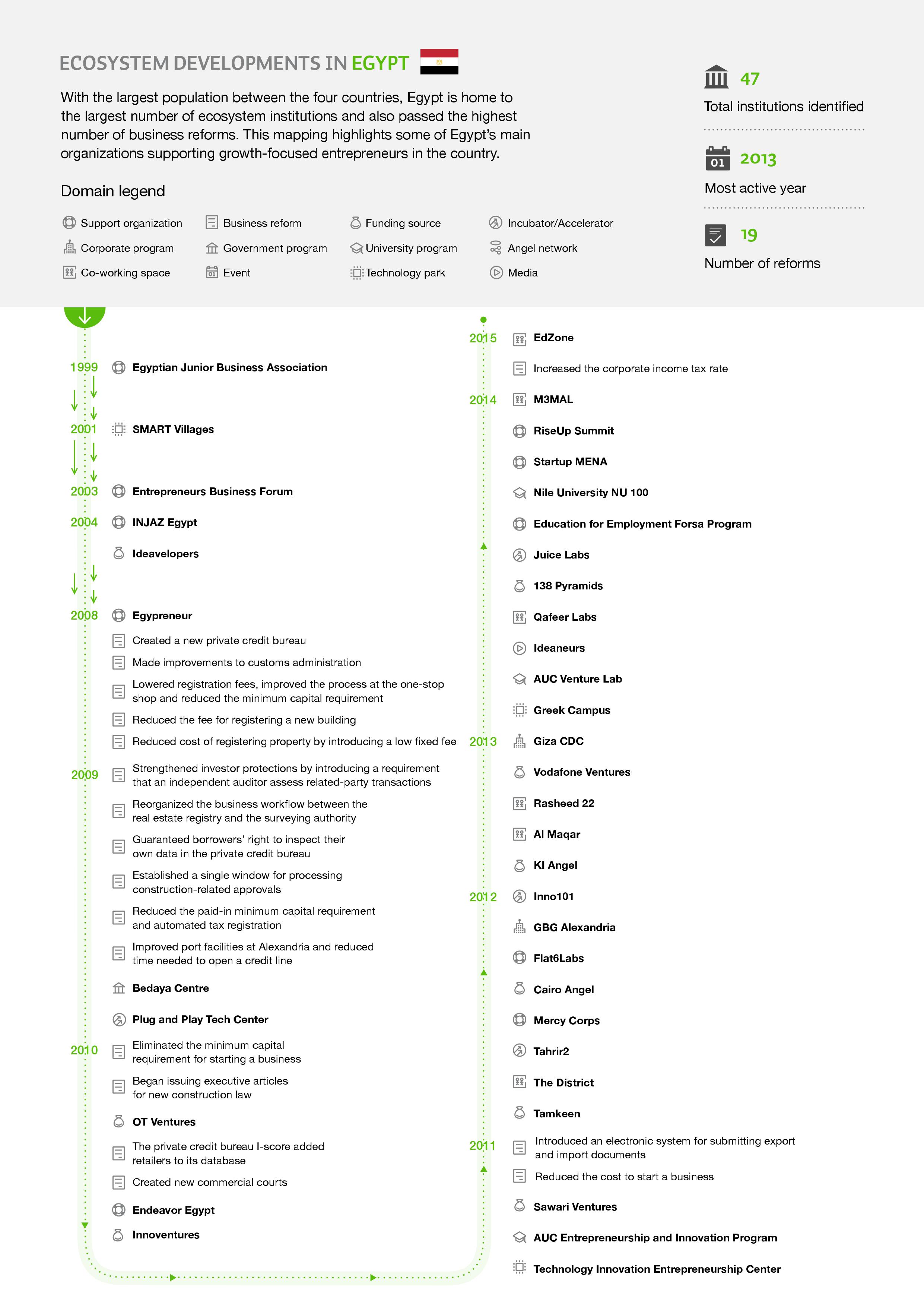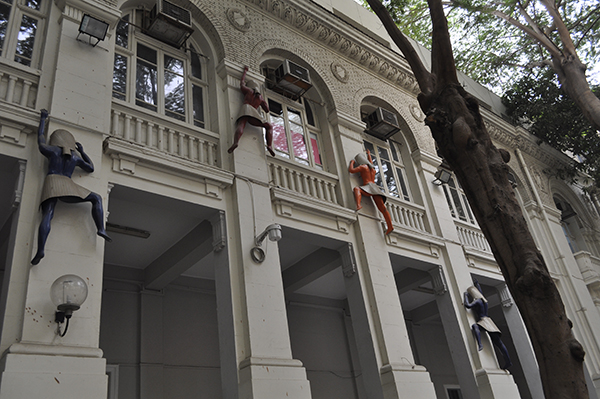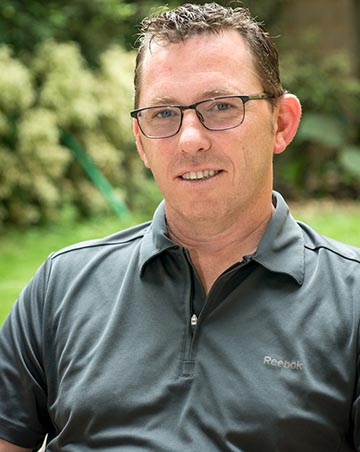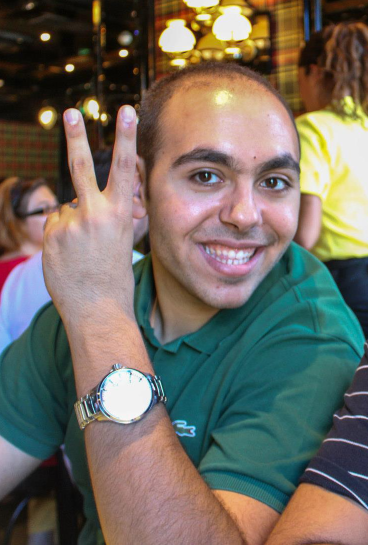Opinions differ as to whether the revolutions in Egypt precipitated a culture of entrepreneurship: Some say that gives the revolutions too much credit over the already-growing sentiment among the youth; others believe it directly stimulated a new mentality.
“January 25 [2011] was all about, we can change our destiny,” reflects Con O’ Donnell, angel investor, Sarmady co-founder, and Co-Founder and Business Development Lead at Rise Up. “It gave the youth an enormous amount of confidence to break out of a system that made them apathetic: there’s no point doing it, it won’t work. No point doing it because it’s too bureaucratic.”
What is certain, however, is the startup scene in Egypt has grown substantially in the past five years. New institutions and players emerge onto the scene, including the Cairo Angels, Flat 6 Labs, and The Greek Campus (leased from the American University of Cairo), which houses many startups’ and mentors’ offices as well as entrepreneurship events. Of the nearly 50% growth in ecosystem stakeholders since 2010 across the Middle East, Egypt claims a quarter of these new institutions supporting entrepreneurship [1].

It used to be that “the idea of starting a business was alien to everyone,” says Con. “You couldn’t go and ask for someone’s daughter’s hand in marriage. [They’d ask] what do you do? I’m an entrepreneur. Are you a doctor or engineer? There’s even a government website where they ask for your profession and they only have five choices….” This burgeoning startup culture grows at speed to be proud of, argues Gamal Sadek, co-founder of Bey2ollak, an award-winning traffic information mobile app operating in Cairo and Alexandria. “I think it’s unusual for societies to adapt so quickly, as we have adapted.”
While the startup ecosystem may be growing, starting a company in Egypt comes with its challenges. “Making business in Egypt is really tough,” remarks Mahmoud Abdelfattah, founder of bkam.com, a price comparison website featuring over 1 million products across four countries’ online retailers. “It’s really hard for small companies.” Challenges abound such as electricity shortages, congested traffic jams that slow your ability to manage multiple meetings a day, a close-knit monopolistic corporate culture in which established companies rarely engage with startups, or 90-day payment cycles that may be the death of a cash-strapped startup.

However, woven in with these challenges is another narrative wherein young Egyptians are starting social enterprises, for-profit businesses solving social and environmental challenges. “We’re becoming leaders in building more sustainable societies. It’s one of the stories we should be boasting about,” says Dina Sherif, co-founder of Ahead of the Curve, a social impact training, advisory, and investment firm based in Cairo and operating regionally.
Ahead of the Curve has invested in two such companies: Tatweer renovates kiosks to not only modernise the aesthetics of Cairo streets, but to also increase the functionality of these major retail hubs by giving people access to relevant information via community bulletins, a place to recycle their garbage, and turning these kiosks into civic hubs. Tatweer has recently moved beyond their pilot phase of 5 kiosks and aims to renovate 500 kiosks in the coming years. Another company, Tawseela, aims to tackle traffic by getting cars off the streets and offering membership-based buses that cater to the upper to middle classes (who statistically drive the most cars on the roads) by equipping the buses with wifi, and ensuring their cleanliness, comfort, and safety.
Yet these encouraging examples “may run out of gas if there aren’t success stories,” cautions Con. “This is the time to show up in Egypt and invest,” adds Gamal. “What’s lacking in the ecosystem by far are the VCs [2]. There are so many opportunities, but we see the opposite… there is a big gap in [local] financing available.” Instead, investors from outside the region are starting to take notice. “Now you have these guys from Sweden and from the UK coming and cherry-picking the startups that were right under [the local investors’] noses,” Con exclaims. “Wake up.”
Featuring:

Con O’Donnell is co-founder and BizDev Lead at RiseUp. He is best known as the co-founder and ex-CEO of Sarmady Communications, which pioneered much of the Arabic online content in Egypt. Since successfully exiting Sarmady (to Vodafone in 2011), Con has been active as a mentor to many of Egypt’s tech start-ups through organizations such as Flat6Labs, MC Egypt, Wamda, & Endeavor Egypt. Con helped set-up and run MC Egypt’s Entrepreneurship Ecosystem Development Program (funded by MEPI). As an angel investor he has invested in 11 Egyptian tech startups since 2012.
Gamal Sadek is co-founder of and responsible for the UX and Design of Bey2ollak, the most popular mobile app in Egypt; serving more than 1.2 million registered users in Egypt. Gamal has a BSc in Computer Science and is a passionate photographer and painter. In 2015, Bey2ollak’s management team decided to pursue global expansion under the name “WhyTraffic”; as we speak it’s the 1st global “Traffic focused” app currently under development to launch in 2 new cities during Q4 2015.

Dina Sherif is a Founding Partner of Ahead of the Curve, which is a social enterprise dedicated to building sustainable societies by creating more sustainable business models and enterprises. Ms. Sherif was recently named one of Trust America’s top 100 thought leaders on responsible business practice in Europe and the Middle East and is currently an Associate Professor of Practice at the American University of Cairo in addition to being an Eisenhower Fellow.
Credits
Written and directed by Hebah Fisher in partnership with Egyptian Streets.
Sound design and original music by Ramzi Bashour. Additional music credit to Sultana Al Tarab (1978 film).
—
[1] Country Insights, September 2015. Wamda Research Lab.
[2] VCs are venture capital firms, or funds that specialise in startup and growing company investing.








Comments (6)
[…] Egypt's Start-Up Scene: A Different Kind Of Revolution Opinions differ as to whether the revolutions in Egypt precipitated a culture of entrepreneurship: Some say that gives the revolutions too much credit over the already-growing sentiment among the youth. Others believe it directly stimulated a new … Read more on Egyptian Streets […]
[…] Paper blogs. Microsoft PowerPoint – AAIM final – AAIM_SME_LPpresentation.pdf. Al-Rowad-Nile Int'l TV.avi. Egypt’s Start-Up Scene: A Different Kind Of Revolution. […]